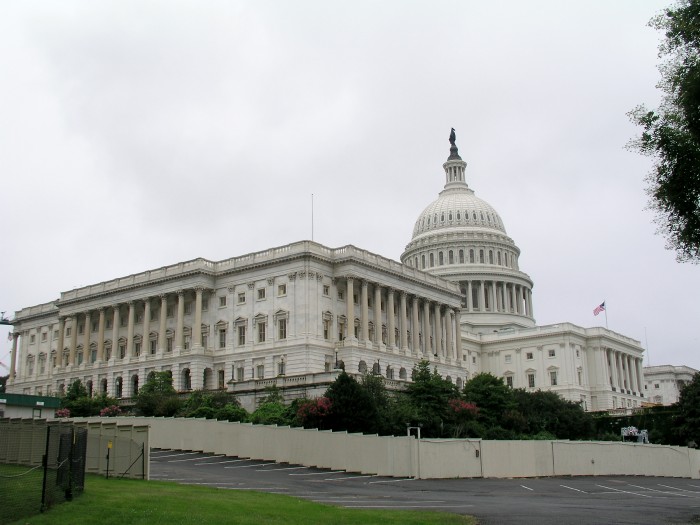“Political Intrigue” Sidelines WEP-GPO Bill…For Now, Anyway. - rollcall.com

The House Bill to repeal the longstanding and much-aligned Windfall Elimination Provision (WEP) and Government Pension Offset (GPO) Social Security rules appeared headed to a forced floor vote, at least until yesterday. In a procedural move described as “unusual,” outgoing Rep. Bob Good, R-Va., advanced a “request to lay the Social Security bill on the table,” rendering the bill “dead for the time being.”
Rep. Good’s motion, agreed to with no objections during the 7-minute pro forma House session, stops the forward motion on H.R. 82 (titled “Social Security Fairness Act of 2023”) until the bill’s primary sponsors–Reps. Garret Graves, R-La., and Abigail Spanberger, D-Va.–develop an alternate approach to achieving the floor vote. The primary objection driving the move to block progress on the bill appears to be the $196 billion price the Congressional Budget Office has identified in the bill, coupled with the impact on Social Security’s already precarious financial situation.
The Importance of Understanding WEP and GPO
As we reported on this website earlier this week, many legislative attempts have been made to fully repeal WEP and GPO, with no prior action taken. The issue is controversial, to be sure, and there are two sides to the argument. For this reason, and in response to many questions from readers, the AMAC Foundation has heavily researched the origin of these two troublesome provisions, concluding that the purpose behind their design is often not clearly understood, nor is the way the math works in support of the original purpose. The Foundation offered a publication (WEP and GPO: To Repeal or Not?) to help clarify the matter and conducted a public webinar presenting thoughts on the subject. A recording of the webinar can be viewed on the Foundation website here.
What is a “pro forma” session?
According to the Congressional Research Service, pro forma sessions are intended primarily as “a daily session whose existence prevents the occurrence of a recess of the annual session or forestalls a sine die adjournment” and are used to accommodate the rule that requires either the House or the Senate to remain in session consistently during the regular congressional schedule. Typically, convening a pro forma session does not lead to voting or conducting legislative business…this one was different, as described in a Roll Call post last evening (check it out in full here).

The government is stealing social security from public employees to fund the mismanaged fund.
Susan:
Thank you for your comment. As you are likely aware, and as we noted yesterday, repeated legislative attempts have been made through the years to fully repeal WEP and GPO, with no prior action taken. The issue is controversial, to be sure, and I would ask you to consider that there are two sides to the general argument. In responding to many reader comments and inquiries on the issue, our staff has researched this topic heavily in an attempt to promote a full understanding of why these rules exist and, perhaps more importantly, how they actually work in practice. The Foundation authored a publication (“WEP and GPO: To Repeal or Not?”, which you can access on the AMAC.us website) to help clarify the matter and we conducted a public webinar presenting thoughts on the subject. A recording of the webinar can be viewed on the Foundation website’s Videos page.
On your concern regarding the mismanagement of Social Security funds, I can only comment that we’ve also researched this subject carefully, and can attest that every dollar ever collected for Social Security purposes can be accounted for, either in benefits paid, legitimate operating expenses, or funds held in cash reserve (i.e., the Trust Fund balances). Some have questioned the investment strategies associated with reserve balances, but the legal directive to hold unused funds in Treasury bonds is a congressional mandate. Also, on the general subject of program management, I would offer the opinion that Social Security’s administrative expenses, at 0.25% of total fund assets last year, represent a favorable level of efficiency for a program so large and widespread.
Again, thank you for taking the time to comment on this article. If you’d like to discuss this matter further, please feel free to contact me through the AMAC Foundation office at 888-750-2622.
Gerry Hafer
Certified Social Security Advisor
The AMAC Foundation
CONFIDENTIALITY NOTICE: The contents of this message, including any attachments, are confidential and are intended solely for the use of the person or entity to whom the message was addressed. If you are not the intended recipient of this message, please be advised that any dissemination, distribution, forwarding, printing, copying, or use of the contents of this message, and any attached documentation, is strictly prohibited. If you received this message in error, please notify the sender. Please also permanently delete all copies of the original message and any attached documentation. The opinions and interpretations expressed in this message are the viewpoints of the message’s author, a trained advisor accredited under the National Social Security Advisors program of the National Social Security Association, LLC (NSSA). The author, the NSSA, and the AMAC Foundation are not affiliated with or endorsed by the United States Government, the Social Security Administration, or any other state agency.